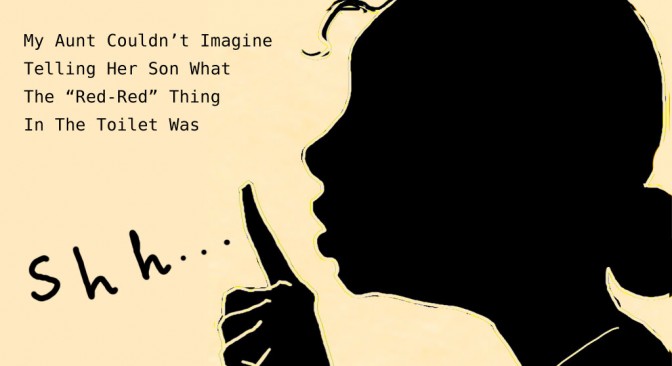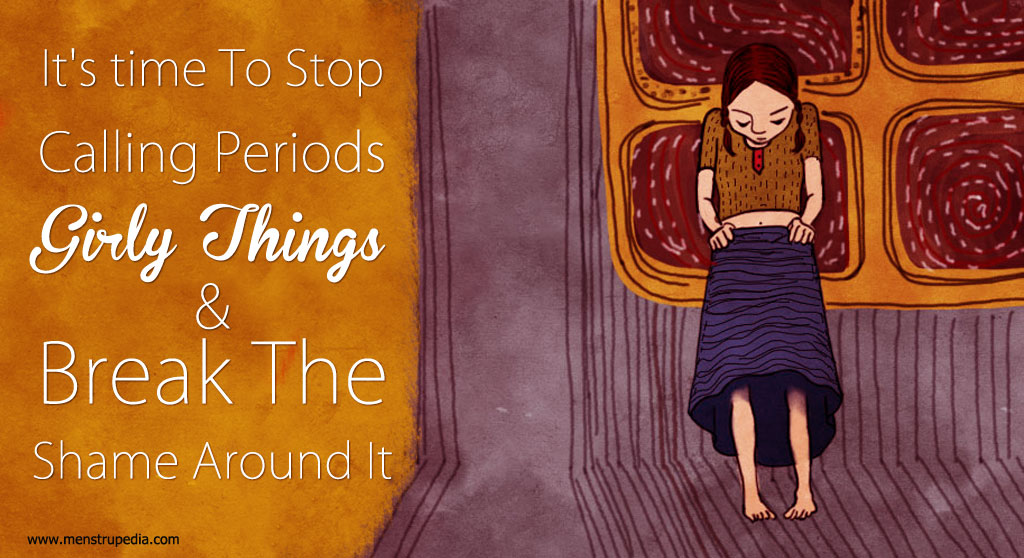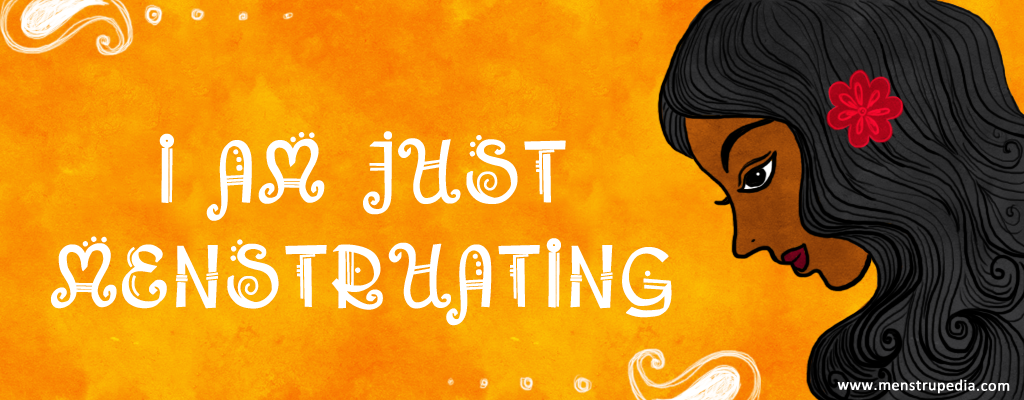“Mom, there is something red-red in the toilet bowl! There’s something wrong with the water!” my 16 year-old cousin brother yelled, as he squished his nose to his mouth with a stinky face. My aunt paused for a second, and gave me an awkward look from the side of her eye. She responded, “We’ll check it out there must be something wrong with it…” She very well knew the “red-red” thing in the toilet bowl was most definitely a cause of me being on my period but she could never imagine saying it out loud, especially to her son.
When you think about it, menstruation is just like any other discharge but it is given at the least, a secretive, if not shameful label. Why though? Would it have been really that disastrous to say that the blood in the toilet bowl was because of me being on my period? My cousin should have been well aware of menstruation, being a late teenager, but the word period is never mentioned at home openly. This added to the fact that every transportation process of a dirty pad to the trashcan is an adventure of its own. It is tradition that in our household, this process be done in almost ninja-like fashion. No one should ever even know you were bleeding for a few days.
These kind of practices towards menstruation are not uncommon. Although there is a variation in approach between every culture and religious group of people, the general uneasiness to bring it up in conversation speaks measures about its ingrained social acceptance as a taboo topic. The most recent and blatant representation of this fact is the way Rupi Kaur’s pictures of her on her period were taken down by Instagram as “inappropriate“. This classifies the picture of her with a blood spot on her shorts equivalent to nude pictures on Instagram. Menstruation, a process essential and natural to most women around the world, is being classified as something scandalous and too provocative for the general audience. Although Instagram eventually allowed the picture to be posted, it still is an accurate portrayal of the knee-jerk reaction to period talk: disgust.
A consequence of this taboo topic is the alarming fact that 70% of Indian women use old rags during their periods which increases the risk of reproductive disease, according to Quartz. Women are often prohibited from entering kitchens or temples or touching certain food. A different article also gathers statistics that cite 50% of men finding it more embarrassing to buy a sanitary napkin than a condom. Further, 55% of young boys find periods as intriguing as sex, as a result of lack of conversation even when something as obvious as drop of blood in the toilet bowl.
As a woman, of course having my period isn’t my most favorite thing in the world, but I respect it nonetheless as a symbol of my womanhood, which makes it possible for life to be brought into this world. Looked at without a religious or cultural lens, periods are a discharge just like any other but somehow are put on a different classification, never to be mentioned. This secretiveness is not only discriminatory against women but also creates a variety of unsafe and uncomfortable situations for women on their period. If for no other reason, at least we can justify ourselves to those who have to face the wrath of our mood swings, if only we can mention that we are indeed on our periods.
This article is republished from Youth Ki Awaaz from here.








